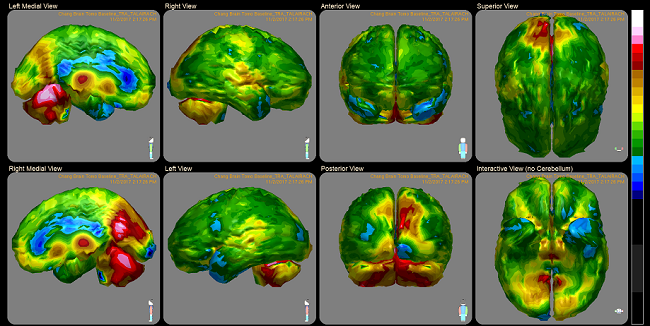I am excited to announce the publication of my new book, Silent Inheritance: Are You Predisposed to Depression. As a long time contributor to Hormones Matter and other publications on the benefits of Vitamin D, this book is quite a departure for me. It is personal, representing my journey through depression. As a researcher, I could not help but investigate the causes of my illness and the book is result of that work.
Depression Across the Globe
The silence of depression is deafening. Over 300 million people of all ages across the globe succumb to depression, according to the World Health Organization. Yet few truly understand this condition. And millions suffer without proper treatment.
For decades, until I suffered from this condition, I viewed it with haughty judgment as a character weakness. Was I wrong! My own experience firmly put me in my place. This illness felt like a nasty fall down the abyss of mental despair and hopelessness.
Subsequently, I connected the research dots: Depression commonly runs in families. Realizing that a few family members had suffered, I delved into genetics—mine as well as understanding the basic science. Based on my methylation profile, I found that I am predisposed to this condition.
I also discovered what triggers this illness. Simply inheriting a genetic profile does not mean that a disease process will develop. Environmental stressors, however, can turn on disease processes by expressing the related genes. Called, epigenetics, we now know that environment plays a significant role in disease expression.
Furthermore, I learned that depression may be overcome with nutritional and conventional treatments that target particular neurotransmitter deficiencies. Nutritional treatments may work when taken according to one’s methylation profile. And, with all their perceived baggage, other treatments can indeed be effective.
My New Book
Silent Inheritance is part personal journey and part guide book. My goal was to guide the reader through the genetic components of depression and provide tools to overcome genetic predispositions through nutritional and conventional means. Throughout the book, I explain the genetic and environmental factors influencing depression including many that are silently inherited from biological parents. The book provides a fresh perspective on behavior and tools to manage that behavior.
Life is too precious to ignore depression. Please remember that you are not alone.
We Need Your Help
Hormones Matter needs funding now. Our research funding was cut recently and because of our commitment to independent health research and journalism unbiased by commercial interests we allow minimal advertising on the site. That means all funding must come from you, our readers. Don’t let Hormones Matter die.















Thanks, Susan, for your research and this new book.
I go back to Mike Dukakis, and his presidential campaign 30 years ago, and the nuances of how he lost his big lead against Senior George Bush.
Dukakis relayed to reporters that his wife, Kitty, had been going through mental health issues — depression — and had sought help in the form of psychologists, counselors and the medical community.
In fact, admitting to seeking mental health treatment is a killer for many in our stigmatized society. Many attributed the mental health treatments to Mike and that was one of the “accusations” against being fit for the nation’s supposed highest office. And, anyone remember Thomas Eagleton —
The 1988 Democratic Party Presidential nominee, Massachusetts Governor Michael Dukakis, in the words of Newsweek, “was accused of having received psychiatric treatment” (“The High Velocity Rumor Mill”, Newsweek, August 15, 1988, p. 22. See also, Andrew Rosenthal, “Dukakis Releases Medical Details To Stop Rumors on Mental Health”, The New York Times, August 4, 1988, p. 1). The accusations proved to be false, but the impression given by the news reports about this story is that Dukakis’ presidential campaign would have been doomed by this one fact alone if the claim he had ever consulted a psychiatrist or psychologist had proven to be true. In 1972 U.S. Senator Thomas Eagleton was nominated for Vice-President of the United States at the Democratic National Convention but subsequently was removed from the ticket by the Democratic National Committee when it became known he had undergone psychiatric treatment, including hospitalization and electric shock treatment.
http://www.antipsychiatry.org/stigma.htm
We still have that overwhelming stigma built into our society, our world of politics, business, work, and just being as a human — if you admit to depression or any mental health issues, you face all sorts of prejudice.
Unfortunately, Kitty and Mike Dukakis are now the pied pipers of ECT as a form of “treatment” to solve depression related issues. Strange how things turn around — first amphetamines for her, then booze, and next high voltage shocks to the brain!
SEE:
https://www.psychologytoday.com/blog/how-everyone-became-depressed/201509/kitty-dukakis-s-chronic-depression
http://www.wbur.org/onpoint/2017/01/17/kitty-dukakis-electroshock-therapy
Of course, this is anecdotal from the Dukakis couple, and there is plenty of evidence against electroshock therapy:
Dr. Dusan Kolar, at the Department of Psychiatry, Queen’s University, Kingston, Ontario, Canada, writes that “ECT is one of the most controversial treatments in medicine, particularly because of the still unknown mechanism of action and uncertainty about cognitive side effects.”
“Cognitive side effects of ECT are sometimes underestimated and may last much longer after completed treatment than it is usually expected. These cognitive impairments associated with ECT may cause significant functional difficulties and prevent patients to return to work.”
>>>>
Interesting, a life in balance, a society that is humane, a culture that is caring, and food and nutrition that are safe; relationships that are real; and believing we are what we EAT, what we READ, what we DO, what we BELIEVE, what we SAY, what we WATCH on TV, and what we HEAR and TOUCH are contexts that should help us discover other ways “to be” and treat and heal our selves and our communities.
Thank you, Paul, for your insightful comments. While the stigma of depression remains real, people “in high places” are now speaking out, and I think it does help. It was a challenge to admit open;y that I have depression. Silent Inheritance addresses the stigma, and how we as individuals may be able to soften it. In 2017, that is happening somewhat. I hope you will have an opportunity to read Silent Inheritance. Regards, Sue